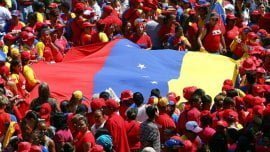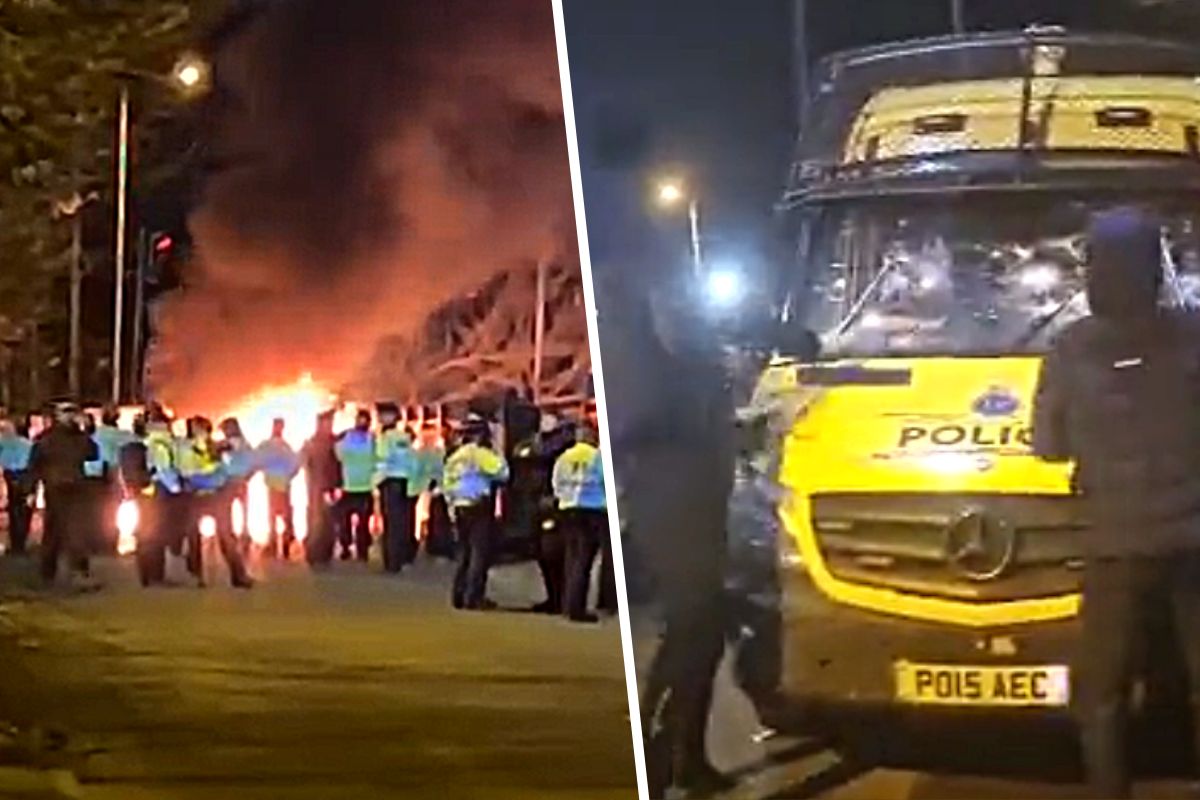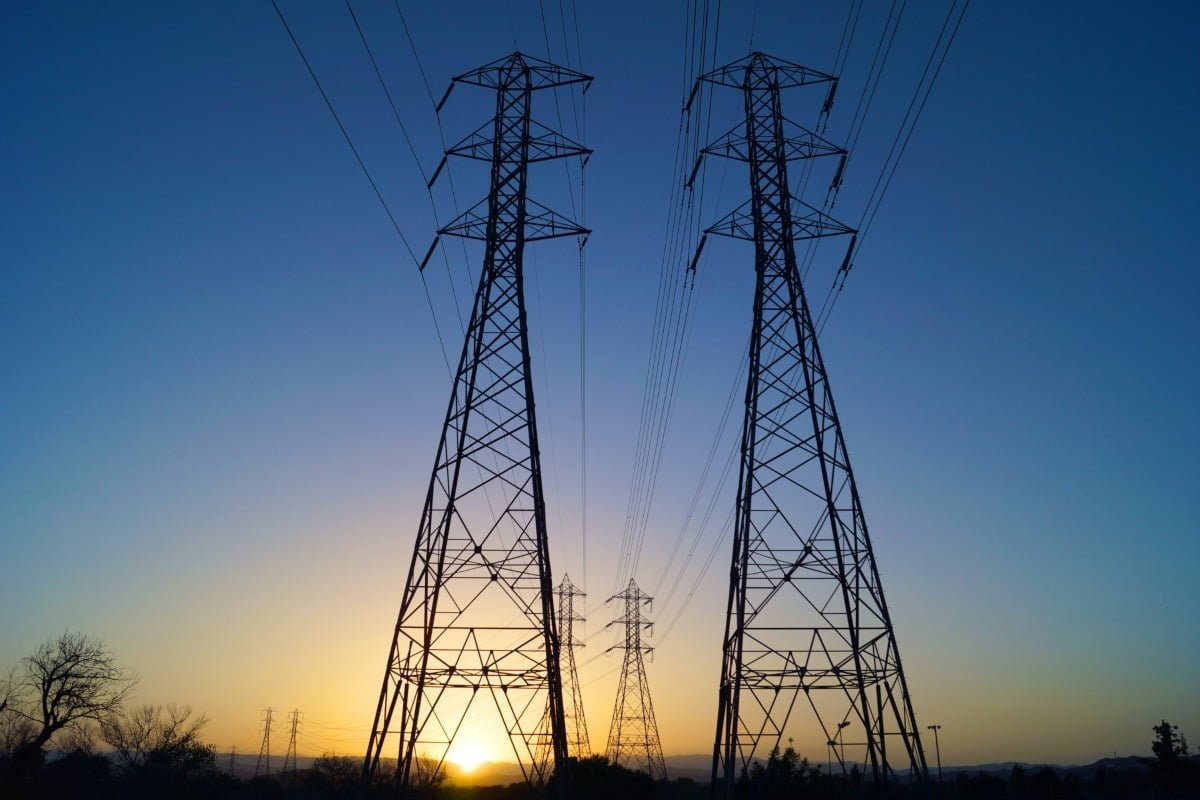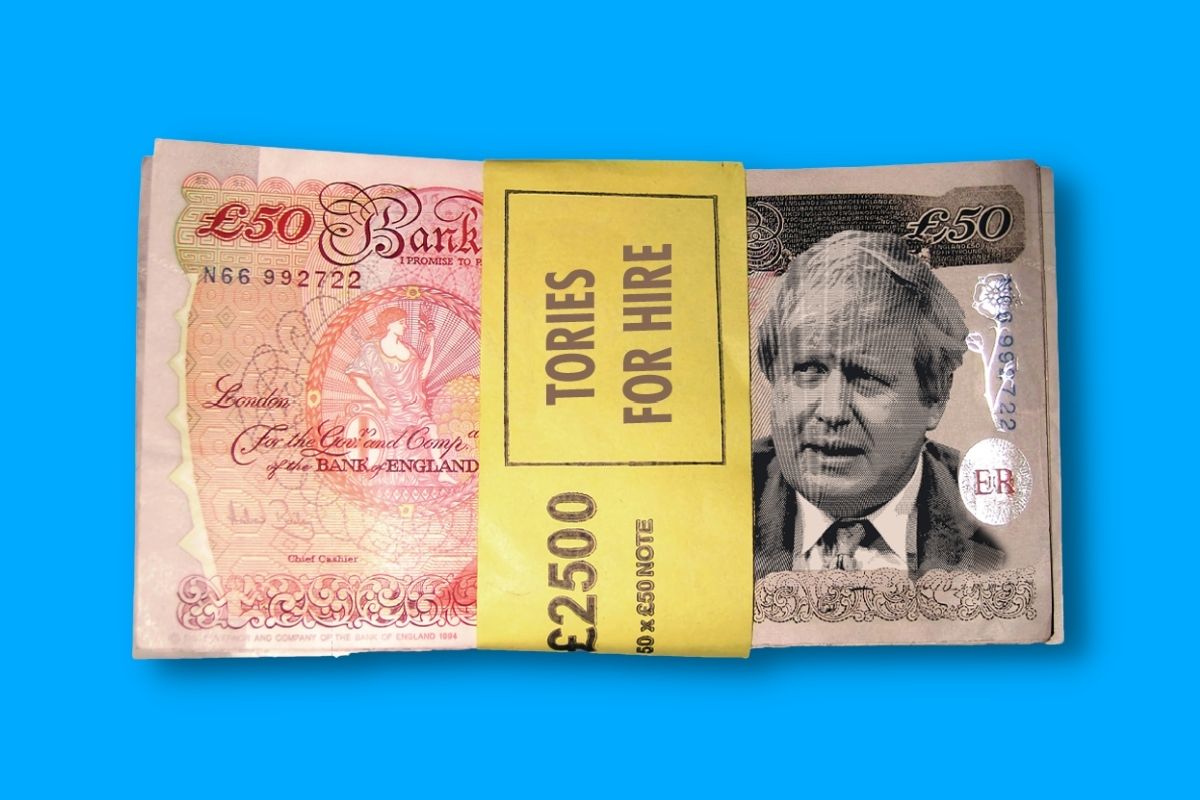We publish here statements by Hands Off Venezuela and the Marxist tendency of the PSUV, which call for a defence of the Bolivarian revolution in the face of recent violent demonstrations by the opposition in Venezuela that have openly stated their intent to overthrow the democratically elected government of President Maduro.
We publish here statements by Hands Off Venezuela and the Marxist tendency of the PSUV, which call for a defence of the Bolivarian revolution in the face of recent violent demonstrations by the opposition in Venezuela that have openly stated their intent to overthrow the democratically elected government of President Maduro.
Hands off Venezuela: Bolivarian revolution under threat!
After days of violent opposition demonstrations in several cities of Venezuela, February 12 had been billed as the D Day of an offensive to overthrow the democratically elected Maduro government. In several cities there were opposition demonstrations which were allowed to proceed without repression. There were also bigger revolutionary , youth demos marking 200 years since the battle of La Victoria, during the independence war.
At the end of the opposition student demonstration in Caracas (which the opposition mouthpiece El Nacional described as being 1500 people strong only) a small but well prepared group of violent thugs attacked the police and the Attorney General building. They were masked and used rocks and ready made molotov cocktails, while coordinating their actions through walkie-talkies. They destroyed several official vehicles and the facade of the building.
During the clashes two people were shot dead. One of them revolutionary militant Juan Montoya “Juancho” from the 23 de Enero neighborhood, the other, Basil Da Costa, an opposition student. The way they were both were shot in the head is reminiscent of those who were killed by sharpshooters on April 11, 2002, as a way to justify the coup.
At the time of writing these lines, small groups of violent opposition youth continue to riot, attack and besiege several official buildings in Caracas and other cities.
Those responsible for these actions are opposition leaders Leopoldo Lopez and M Corina Machado who have been instigating the violent demonstrations with the clear aim of destabilising the democratically elected government.
The opposition is profoundly divided between those who refuse to recognise their 3 successive election defeats in 2012-13 and wish to organise the immediate overthrow of the Maduro government, and those who calculate that the deteriorating economic situation (due to economic sabotage) will allow them eventually to defeat the Bolivarian revolution in the ballot boxes.
No doubt, the international media will “report” on these events in a one-sided way, presenting a story of “courageous peaceful opposition youth confronting a vicious and repressive regime”.
We call on the international labour movement, the solidarity activists and progressive public opinion to remain alert and vigilant, to counter the lies of the media and to do everything in their power to mobilise solidarity with the Bolivarian revolution in this crucial moment.
Originally published by Hands Off Venezuela
The New Coup Plans of the Bourgeoisie
Using the slogan of “Unity on the Streets” the right wing in Venezuela has launched a new “guarimba” (1) (attempts by right wing opposition to create public disorder and unrest on the streets –Ed.) against the Bolivarian revolution.
Statement issued by the Marxist Tendency in the United Socialist Party of Venezuela (PSUV) on the New Plans of the Venezuelan Bourgeoisie for a Coup d’Etat.
Despite the fact that the Bolivarian government has issued calls to try and arrive at some way of working together with the political representatives of the opposition with the aim of resolving the different problems facing the country, the most extreme sections of this rancid opposition have prepared a new offensive to destabilise the country.
Conciliation is not possible.
After the elections of the 8th of December last year President Maduro had a meeting with the main sections of the national bourgeoisie where he made a number of concessions such as offering credit, dollars from the state and other opportunities. As was to be expected, a few weeks later these same people replied with an even greater level of hoarding goods thereby ramping up the economic war. In a similar manner, while the government was meeting with the Venezuelan opposition to try and work together to resolve issues such as insecurity, violence on the streets, education, health, and so on, the clear response of the right wing has been to issue a call to the most radicalised sections of the opposition who have been affected by government measures to mobilise, take to the streets and overthrow the government.
None of this should surprise us. The lessons are clear and they should have been learnt some time ago as we, the Marxists, have warned about time and time again. Any attempt to try to conciliate with the bourgeoisie and its political representatives in Venezuela, all grouped together in the parties of the MUD (2), will not succeed. The national bourgeoisie is incapable of playing any progressive role and has been irreconcilably opposed to the Bolivarian revolution since its beginnings. The revolution has meant the awakening of the working masses and a profound change in organisation and revolutionary consciousness that threatens the class domination of the bourgeoisie. For that reason alone there is no possible way of arriving at any form of conciliation with the bourgeoisie. Given this situation, the “national” bourgeoisie have thrown themselves into the arms of their masters in Washington to whom they are tied by a thousand economic, political and personal threads.
This is a Class Struggle
As we have said many times, we cannot count on the bourgeoisie to develop the country, not even to carry out basic progressive reforms in the areas of education, health, housing, and so on. They failed to carry out these reforms when they had their own servile governments that they were allied to and which governed in their interests, so they will be even less inclined to carry out these reforms when they have a government that is taking measures for the benefit of the working class.
We should not forget that the interests of the bourgeoisie and the working class are diametrically opposed. While the neo-liberal politicians of the IV Republic (3) carried out measures solely in the interests of the bourgeoisie, at the same time they carried out brutal measures against the living standards of the working masses. On the other hand the reforms that have been carried out during the course of the Bolivarian revolution – price controls, wage rises, expropriations, and others – have come up against (although only to some extent) the interests of the bourgeoisie.
In this sense the interests of both classes are in conflict and there is no middle way that can be taken which would benefit both. Whichever government tries to defend and stand up for the interests of the working class will, in the long run, automatically end up affecting and striking out at the interests of the bourgeoisie, even if it does not wish to affect them directly. This is what Comandante Hugo Chavez understood when he said that a third way was not possible and that the only road that the Bolivarian revolution had to take and should take was the road to socialism. Furthermore, we were able to see that when there was an attempt to carry out a timid land reform programme under the Land Law of 200, that was sufficient enough for the bourgeoisie to carry out a coup in 2002 against President Chavez.
The Way to Resolve the Real Problems of the Country.
If the bourgeoisie has clearly shown its complete lack of interest in working together with the Bolivarian government, and the Venezuelan right wing has not given up its sabotage and destabilisation activities, we have to understand once and for all that it is impossible for them to behave in any way other than what they have been doing. We have had 14 years of permanent economic sabotage, coup d’états, assassination attempts, orchestrated unrest on the streets and a lot more, and during all of this time there has not been an ounce of real change in the attitude of the bourgeoisie and their political representatives towards the Bolivarian revolution. This has not happened and never will.
For its part the bourgeoisie has continued to sabotage the economy by means of an economic war because they can do so. While the main means of production in the country remain in their hands, they will continue to have the power to use them as they so wish, and as we have already shown clearly, what suits them does not suit the people.
It is for this reason that in order to develop the country we have to socialise the main levers of the economy. This means expropriating the main monopolies (national and international), the large land estates and the private banks. At the same time all these industries must be put into the hands of the working class which, together with the community councils, the communes, the peasant councils and other revolutionary organisations, will be the ones in charge of managing them democratically for the benefit of all and not for the benefit of a few, something that has been happening ever since the Conquistadores brought their class society to these shores many centuries ago.
It is only in this way that we will be able to really plan the economy of the country. This will enable us to produce what is needed, to maintain fair prices, decent wages, full employment, and once and for all to put an end to poverty, insecurity and so on.
How to fight against the Guarimbas, the orchestrated disorder on the streets.
Only the revolutionary mobilisation of the masses will put an end to the Guarimbas carried out by the Venezuelan right wing and directed by Imperialism. The Bolivarian revolution has shown time and time again that when faced with attempts at destabilisation, the best revolutionary response has been the organised working class and all of the people taking to the streets to defend the social gains and the Bolivarian revolution.
What we have been seeing over the past few days, the Guarimbas in different towns, such as Merida and San Cristobal, including the violent march that took place today in Caracas which resulted in the death of a revolutionary leader in the district of the 23 de Enero (23rd January), is a clear sign of a campaign of destabilisation being carried out by the most extreme elements of the right wing opposition. It is only through the revolutionary mobilisation on the streets of the working class and the people that we will be able to confront the violent sections of the right wing and above all its small groups that have fascist tendencies. These groups are carrying out a national plan of violent street activities against the Bolivarian Revolution, activities that without doubt have as their aim the carrying out of a new coup d’état.
If the revolution continues to postpone the decisive actions that are necessary to put an end once and for all to the power of the bourgeoisie so that we can finally put a stop to any attempt at counter-revolution that will overthrow and crush our revolution, it will mean preparing the conditions in the near future for the defeat of the revolution itself and the victory of bourgeois reaction.
- To put an end to the coup let us put an end to the power of the bourgeoisie.
- Expropriate the capitalists to put an end to the economic coup d’état.
- For the mobilisation of the people and a radicalisation of the revolution to destroy those who want to carry out a coup.
(1) A Guarimba – the name given by the supporters of the Bolivarian revolution to the attempts by the right wing opposition to create public disorder and unrest on the streets.
(2) Mesa de Unidad Democratica – Democratic Unity Roundtable – right wing electoral coalition.
(3) Name given by President Hugo Chavez to the period between 1958 and 1998 when the political system in Venezuela was dominated by two bourgeois parties who had an agreement to take turns in government under the Punto Fijo Pact.






